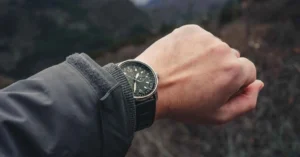Renowned denim company Levi Strauss & Co. is a global brand well-known for its premium jeans and consistent presence in the fashion industry. In recent years, Levi’s has started many trademark lawsuits against other companies.
A recent trademark infringement involves a lawsuit against FullCount Co., a Japanese denim brand. As you know, trademarks are crucial in the fashion industry for differentiating brands and ensuring authenticity.
To gain a deeper understanding of trademark protection and stay updated on similar cases, visit Am Badar & Am Badar’s insight page.
Overview of Japanese Denim Culture
In addition to American brands like Levi’s, Japanese denim has earned a solid international reputation. Denim’s origins in Japan date to the post-World War II period when American soldiers brought the fabric to the country.
From an American export, denim has become a uniquely Japanese invention distinguished by its traditional methods and brilliance.
Considered a sought-after luxury commodity, Japanese denim is valued for its precise handwork, deep blue tone, and durability. Let’s examine Japanese denim culture before discussing Levi’s trademark lawsuit cases.
The Rise of Japanese Denim
When large textile manufacturer Maruo Clothing began creating its varieties in 1964, Japanese denim began to fly.
Initially, Japanese businesses battled restricted access to American manufacturing technologies and resources. Early Japanese jeans manufacturers, including Maruo Clothing, imported American denim fabric and heavy-duty stitching tools.
Japanese factories like Kaihara developed innovative indigo-dyeing methods by 1967, enabling Japan to produce denim entirely on its territory.
This discovery marked Japan’s freedom in denim fabrication and set off a cultural revolution that produced denim’s growing popularity among young people there.
Japanese companies began manufacturing premium jeans suitable for home and international markets in the 1980s, establishing Japan’s global denim leadership, which continues today.
Cultural Significance of Denim in Japan
In Japan, denim symbolizes more than just fashion; it reflects culture and workmanship. Making jeans emphasizes Japanese ideas of excellence, history, and purity.
Using traditional indigo dying techniques, Japanese denim companies combine modern utility with regional sensibilities and cultures.
That’s why Japanese denim has become a prominent fashion and cultural statement: it combines Western and Japanese ideas.
Levi’s Trademark Lawsuits Against Japanese Brands
We will next discuss Levi’s trademark lawsuit cases involving local Japanese companies. This article will focus on the Levi vs. FullCount Co. case.
Legal Arguments and Reactions
Levi Strauss claims FullCount purposefully violated its registered trademarks, including the red “Tab” and “Arcuate” emblems.
Levi’s claims that these patterns are associated with its brand and that any copycat may mislead customers, causing them to identify FullCount items with Levi’s incorrectly.
The complaint claims that FullCount has directly breached past court injunctions, including those dated 2009 and 2018. Levi’s claims that FullCount’s ongoing violations show a lack of respect for the law and a conscious effort to exploit Levi’s well-known brand.
In these trademark lawsuit cases, Levi’s alleges that FullCount acted maliciously, especially since the infringing items were part of FullCount’s 30th anniversary collection.
The complaint alleges that FullCount intentionally used Levi’s trademarked designs to benefit from Levi’s brand recognition. Levi’s lawyers contended that this conduct breaches trademark law and illustrates a broader trend of exploiting established brands for profit.
This accusation is crucial because it aims to show that FullCount’s actions were intentional, designed to draw customers by linking to Levi’s iconic style.
Key Cases and Their Outcomes
Let’s look at important trademark lawsuit cases Levi’s recently brought and their results to better grasp on this issue:
1. The 2009 Injunction
The court concluded in favor of Levi’s and ordered a permanent injunction prohibiting FullCount from manufacturing anything that may be mistaken with Levi’s products to protect customers against false look-alikes.
2. The 2018 Injunction
The subsequent lawsuit resulted in a ruling that broadened the restrictions on FullCount, clearly banning any “manufacturing, licensing, presenting for sale, selling, distribution, importing, exporting, marketing, advertising, or exhibition” of items featuring designs similar to Levi’s.
3. The 2024 Lawsuit
This case was filed in September 2024. Levi’s asserts that FullCount has disregarded prior court orders and has broadened its range of infringing products to feature new items with designs resembling Levi’s protected trademarks.
The lawsuit includes two U.S. retailers, Franklin & Poe and Standard & Strange, who were accused of selling FullCount’s infringing products in their stores.
Levi’s asks for preliminary and permanent injunctive relief to halt FullCount’s activities and be paid for losses and a jury trial.
Impact on the Denim Industry
So, what are the possible effects of Levi’s trademark lawsuit cases on Japan’s denim industry? Let’s analyze all below:
1. Consequences for Japanese Denim Brands
Many Japanese denim producers may have to compromise their brand identification and uniqueness if they change design aspects to prevent overseas trademark infringements.
Furthermore, applying foreign intellectual property rules might significantly affect smaller Japanese denim manufacturers thinking about legal costs and possible redesign projects.
2. Implications for Trademark Law in Fashion
These court decisions show how important trademark law is in fashion, particularly as businesses protect their intellectual property internationally.
Levi’s aggressive trademark enforcement highlights to other apparel manufacturers the need for trademark protection for competitiveness.
Increasing trademark enforcement might motivate other foreign businesses to seek stricter protection for their original ideas, reducing worldwide trademark restrictions.
3. Shifts in Consumer Perception and Brand Loyalty
Levi’s constant trademark protection adds to its credibility as a reliable and respected provider of quality denim goods. However, some consumers might see Levi’s action as an effort to stifle competition and control the market.
Meanwhile, the impact on brand loyalty for Japanese companies might differ depending on how consumers see these events. Legal limitations on design might lessen the diversity and distinctiveness that first drew consumers to these businesses, affecting customer loyalty over time.
Levi’s trademark lawsuit cases highlight the importance of strong intellectual property protection for the fashion industry.
Our expert Trademark Opposition services, offered at Am Badar & Am Badar, enable clients to protect their brand identification through comprehensive legal advice and proactive IP management.
See our complete services or contact page for more information on protecting your fashion brand. Also, check our insight page for informative posts like “Complete Guide of Trademark Registration Indonesia.”






